Resources

Responding to Jacques Derrida's vision for what a 'new' humanities should strive toward, Peter Trifonas and Michael Peters gather together in a single volume original essays by major scholars in the humanities today. Using Derrida's seven programmatic theses as a springboard, the contributors aim to reimagine, as Derrida did, the tasks for the new humanities in such areas as history of literature, history of democracy, history of profession, idea of sovereignty, and history of man. Deconstructing Derrida engages Jacques Derrida's polemic on the future of the humanities to come and expands on the notion of what us proper to the humanities in the current age of globalism and change. (From the Publisher)
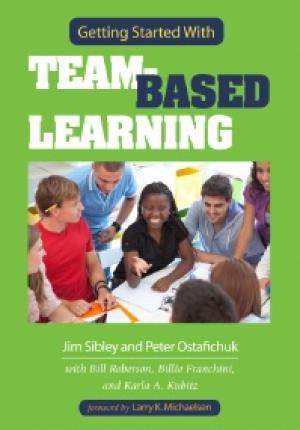
Click Here for Book Review Abstract: This book is written for anyone who has been inspired by the idea of Team-Based Learning (TBL) through his or her reading, a workshop, or a colleague’s enthusiasm, and then asks the inevitable question: how do I start? Written by five authors who use TBL in their teaching and who are internationally recognized as mentors and trainers of faculty making the switch to TBL, the book also presents the tips and insights of 46 faculty members from around the world who have adopted this teaching method. TBL is a uniquely powerful form of small group learning. It harnesses the power of teams and social learning with accountability structures and instructional sequences. This book provides the guidance, from first principles to examples of practice, together with concrete advice, suggestions, and tips to help you succeed in the TBL classroom. This book will help you understand what TBL is and why it is so powerful. You will find what you need to plan, build, implement, and use TBL effectively. This book will appeal to both the novice and the expert TBL teacher. (From the Publisher)
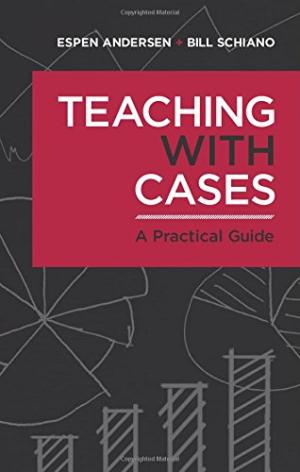
Click Here for Book Review Abstract: Case method teaching immerses students in realistic business situations--which include incomplete information, time constraints, and conflicting goals. The class discussion inherent in case teaching is well known for stimulating the development of students' critical thinking skills, yet instructors often need guidance on managing that class discussion to maximize learning. "Teaching with Cases" focuses on practical advice for instructors that can be easily implemented. It covers how to plan a course, how to teach it, and how to evaluate it. The book is organized by the three elements required for a great case-based course: 1) advance planning by the instructor, including implementation of a student contract; 2) how to make leading a vibrant case discussion easier and more systematic; and 3) planning for student evaluation after the course is complete. Teaching with Cases is ideal for anyone interested in case teaching, whether basing an entire course on cases, using cases as a supplement, or simply using discussion facilitation techniques. To learn more about the book, and to see resources available, visit teachingwithcases.hbsp.harvard.edu. (From the Publisher)

In this text, university teachers from Eastern Europe, Western Europe and North America report on their efforts to prepare students for engaged democratic citizenship. Their case studies illustrate methods employed to prepare citizens for meaningful participation in democracies, whether long-standing, young or emerging. The contributors describe their approaches in detail, reflecting on the philosophical and pedagogical considerations being employed, as well as exploring models of experiential service-learning, action research, and other curricular innovations. Stakeholders are encouraged to replicate, modify or entirely recast the ideas presented, in the interest of building capacity within their institutions, peers and partners to realize and maintain the promise of democracy. (From the Publisher)
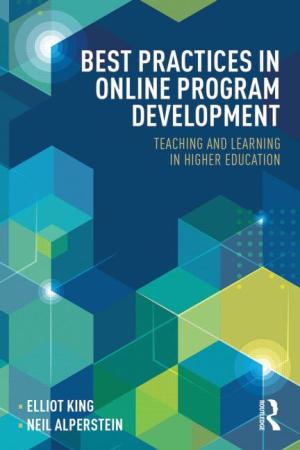
Click Here for Book Review Abstract: Best Practices in Online Program Development is a practical, hands-on guide that provides the concrete strategies that academic and administrative departments within institutions of higher learning need to develop in order to create and maintain coherent and effective online educational programs. Unlike individual courses, an online education program requires a comprehensive, inter-departmental effort to be integrated into the ongoing educational project of a college or university. This book focuses on the: Integration of online education into the institutional mission Complex faculty-related issues including recruiting, training, and teaching Multifaceted support required for student retention and success Need for multilayered assessment at the course, program, technical, and institutional levels Challenges posed to governance and by the need to garner resources across the institution Model to insure ongoing, comprehensive development of online educational programs Best Practices in Online Program Development covers the above topics and more, giving all the stakeholders in online educational programs the building blocks to foster successful programs while encouraging them to determine what role online education should play in their academic offerings. (From the Publisher)

Click Here for Book Review Abstract: Based on the authors’ experiences in academe over seventy-five years, The Higher Education Scene in America: Some Observations discusses a number of issues that confront America’s higher education scene today. Those issue embrace such problems as: (1) the missions(s) of our colleges and universities and the development of critical thinking and/or employability; (2) the role of for-profit academic institutions; (3) the impact of online technology; (4) diffusion of power and achievement of consensus between administrators and faculty; (5) the importance of financial matters, embracing budgets, fundraising, and endowments; (6) the insidious problem of conflicts of interest; (7) the scandalous impact of big-time, big-money Division 1 sports on academe; (8) the growth of non-academic functions; and (9) the importance of leadership in consensual institutions and how leaders are chosen. (From the Publisher)
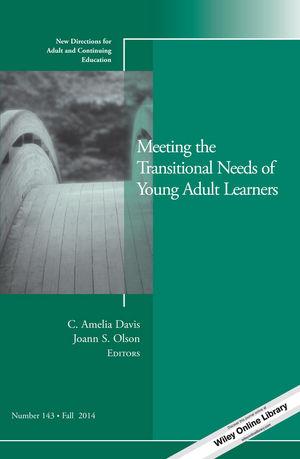
Click Here for Book Review Abstract: This is the first New Directions volume related to young adult learners since 1984. Then, as now, young adults are an important segment of the adult population but have received scant attention in the adult education literature. Increasingly, youths and young adults are enrolling in adult education programs and in doing so are changing the meaning of adulthood. Given the significant demographic, technological, and cultural shifts during the past 30 years, there is an increasing need for practitioners and program planners to reconsider what constitutes “adult” and “adult education.” An understanding of the changing meaning of adulthood is fundamental to developing programs and policies that will address the needs of younger learners, and we believe it is time for an updated discussion among adult educators and scholars in other disciplines. This sourcebook is designed to reignite the discussion related to meeting the educational needs of young adults along with a timely and interdisciplinary discussion that highlights the transitional needs of young adult learners. This is the 143rd volume of the Jossey Bass series New Directions for Adult and Continuing Education. Noted for its depth of coverage, it explores issues of common interest to instructors, administrators, counselors, and policymakers in a broad range of education settings, such as colleges and universities, extension programs, businesses, libraries, and museums. (From the Publisher)
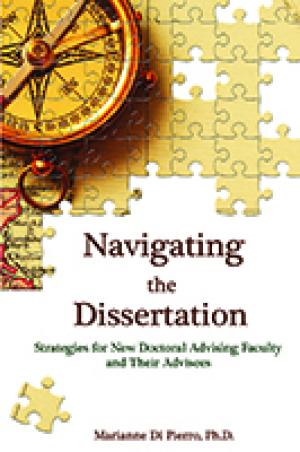
Click Here for Book Review Abstract: This book examines the intricacies of the doctoral educational process and delineates a process for continuous improvement that will shape and enhance better professional relationships between dissertation advisors and their advisees and cultivate opportunities for increased retention and graduation. The book includes critical principles, interwoven with students’ real life experiences which serve as illustrative vehicles. Moreover, its innovative approach – a book written for new advisors and their advisees or for seasoned advisors seeking new ways to communicate with their advisees – departs from other books that provide generally only a one-dimensional view, usually from the student’s perspective. The titles of many of these are couched in metaphors of survival and overcoming a threat, rather than centered in strong initiatives that will lead to timely graduation in a supportive and encouraging environment. This book offers innovative and pioneering leadership approaches to transport advisors and advisees to a successful outcome. (From the Publisher)
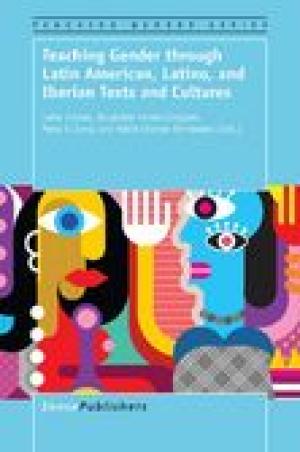
Teaching Gender through Latin American, Latino, and Iberian Texts and Cultures provides a dynamic exploration of the subject of teaching gender and feminism through the fundamental corpus encompassing Latin American, Iberian and Latino authors and cultures from the Middle Ages to the 21st century. The four editors have created a collaborative forum for both experienced and new voices to share multiple theoretical and practical approaches to the topic. The volume is the first to bring so many areas of study and perspectives together and will serve as a tool for reassessing what it means to teach gender in our fields while providing theoretical and concrete examples of pedagogical strategies, case studies relating to in-class experiences, and suggestions for approaching gender issues that readers can experiment with in their own classrooms. The book will engage students and educators around the topic of gender within the fields of Latin American, Latino and Iberian studies, Gender and Women’s studies, Cultural Studies, English, Education, Comparative Literature, Ethnic studies and Language and Culture for Specific Purposes within Higher Education programs. “Teaching Gender through Latin American, Latino, and Iberian Texts and Cultures makes a compelling case for the central role of feminist inquiry in higher education today … Startlingly honest and deeply informed, the essays lead us through classroom experiences in a wide variety of institutional and disciplinary settings. Read together, these essays articulate a vision for twenty-first century feminist pedagogies that embrace a rich diversity of theory, methodology, and modality.” – Lisa Vollendorf, Professor of Spanish and Dean of Humanities and the Arts, San José State University. Author of The Lives of Women: A New History of Inquisitional Spain “What is it like to teach feminism and gender through Latin American, Iberian, and Latino texts? This rich collection of texts … provides a series of insightful and exhaustive answers to this question … An essential book for teachers of Latin American, Iberian and Latino/a texts, this volume will also spark new debates among scholars in Gender Studies.” – Mónica Szurmuk, Researcher at the National Scientific and Technical Research Council of Argentina. Author of Mujeres en viaje and co-editor of the Cambridge History of Latin American Women’s Literature (From the Publisher)

Click Here for Book Review Abstract: The authors created this manual particularly for beginning instructors at the post-secondary level who have never had formal teacher training. They not only present the essentials of effective instruction that incorporates technology, but in doing so, review key principles and practices that have been shown to enhance students’ motivation to learn. The manual is a distillation of core information derived from both the authors’ own professional experience and the body of literature on teaching effectiveness, learning motivation, and the infusion of technology in post-secondary settings. They draw on their respective educational and research backgrounds that range from the elementary through to the college and university levels. (From the Publisher)